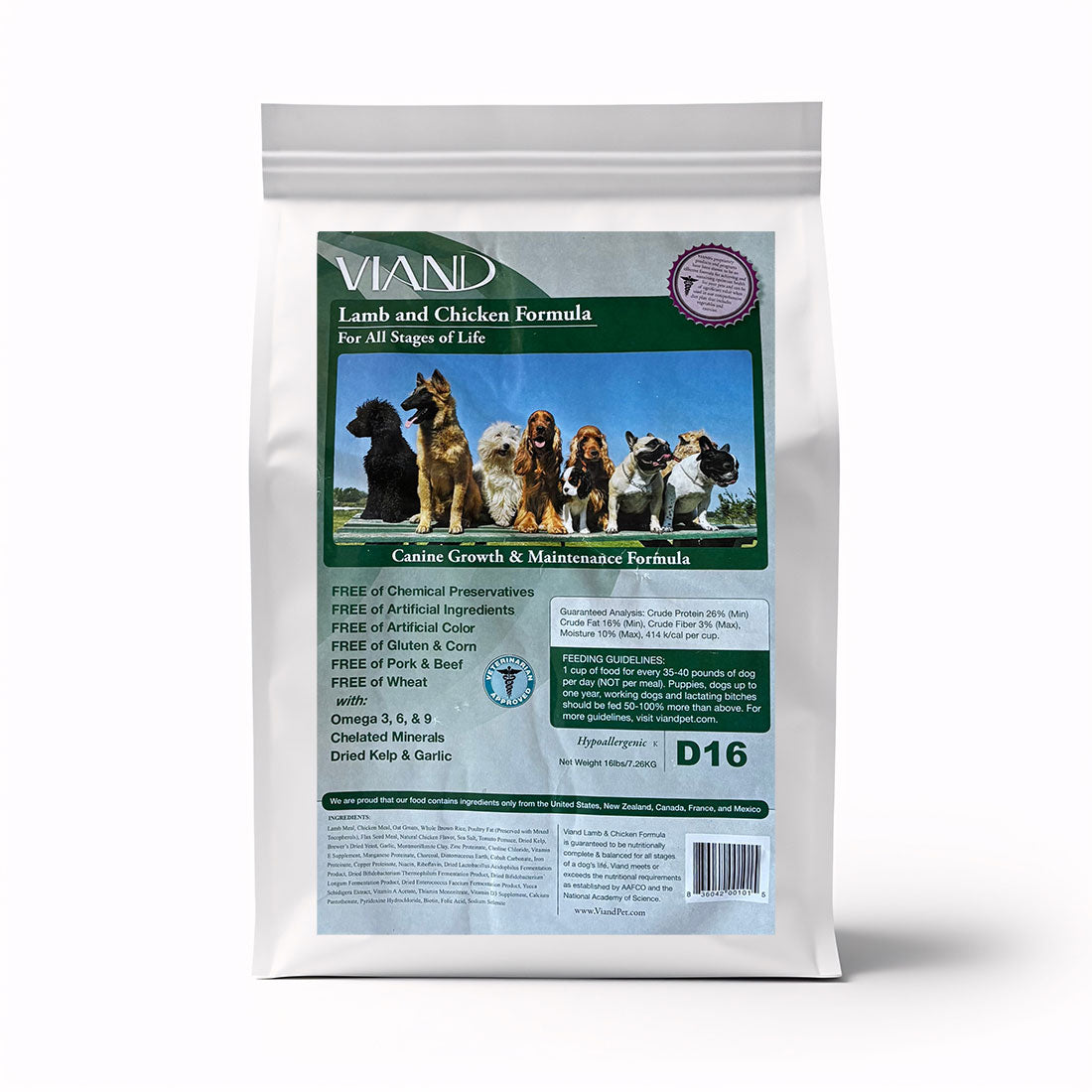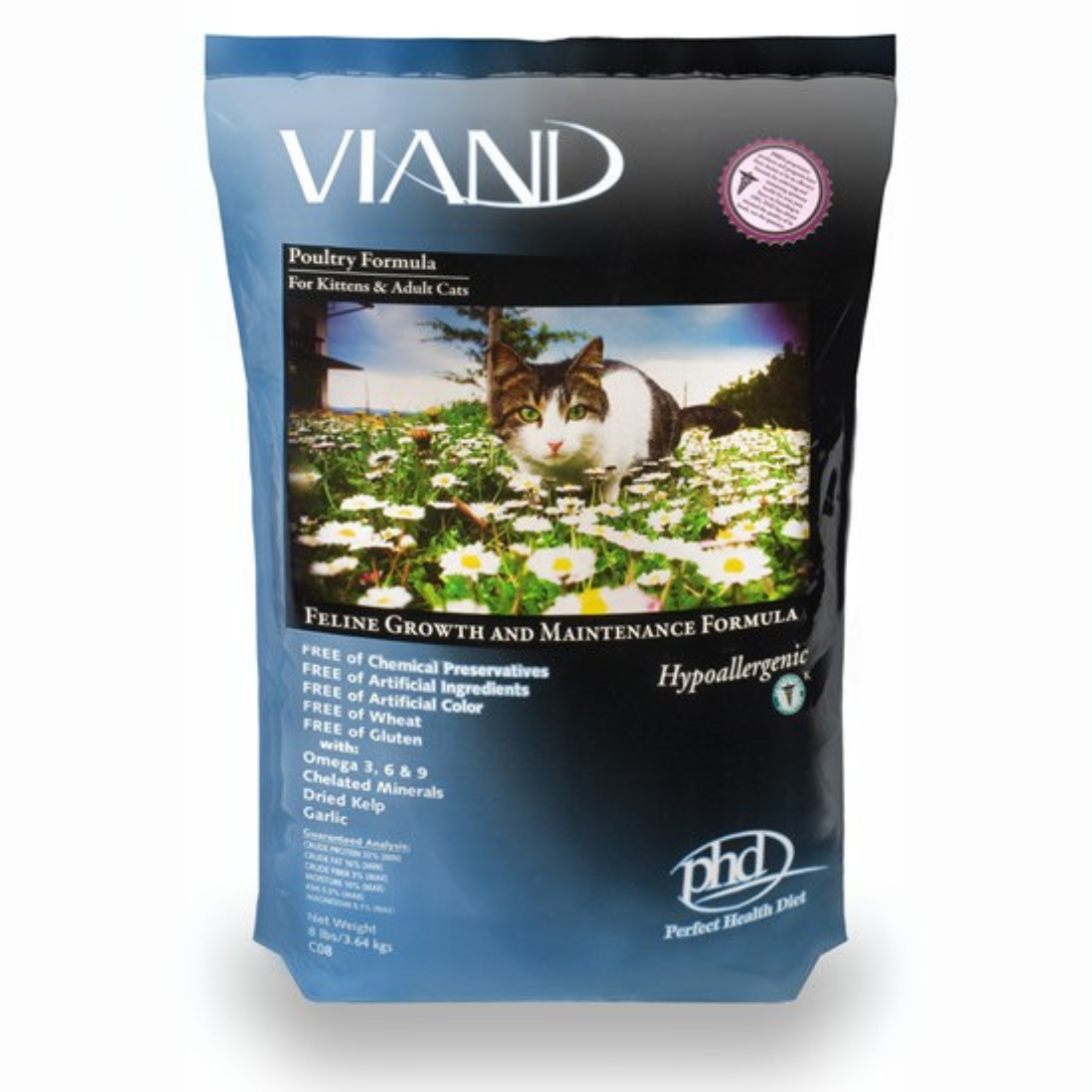· By Scott Pollak
What Pet Owners Need to Know
We have learned a lot from the holistic community, especially this truth: Feeding a live creature dead food cannot deliver optimum health.
The most important factor when raising and maintaining the overall wellness of your animal is the inclusion and introduction of raw meat. Canned, moist or processed food loses most of its integrity and nutritional value during the high-temperature manufacturing process.
Because we recommend feeding dogs and cats raw meat either on a regular basis or rare occasion, we are often asked "What about parasites?" The most common questions concern E.coli and Salmonella. E.coli is a bacterium normally found in the billions in the colons of our animals. It is essential for life and helpful to the digestive process since it breaks down various food components. Only when an unhealthy animal is fed decaying meat can the colonies of E. coli multiply and cause harm, which will pass through the animal, not kill it.
I cannot emphasize enough the previously mentioned statement, "when an unhealthy animal is fed", as that is the most important fact. An unhealthy animal may exhibit many symptoms, which may seem unconnected, yet they are all early signs of an underlying disturbance or "unease" NOT disease.
Our pets are carnivores, so their bodies are designed to eat and process raw meat. The carnivore's digestive system is very different from a human's. Theirs is a simple stomach with a short digestive tract; ours is a complex stomach with a much longer tract designed for processing more vegetables and grains. What enters a carnivore's stomach is subject to almost double the amount of hydrochloric acid found in a human stomach.
Carnivores also produce digestive enzymes in their stomachs which, with the high acidic level, gives them the ability to digest raw meat and even bones. Our pets can eat things that would make us all quite ill.
What Pet Owners Need to Know About Parasites
Parasites are microscopic, such as fungi, protozoa, bacteria or viruses. They can also be larger, such as roundworms, hookworms, whip-worms or flatworms, fleas and ticks. Parasites can reside anywhere in or on the body and can sicken any tissue or organ, even organs that they do not actually occupy. The most common way in which they injure their host is by secreting toxins and enzymes that destroy healthy tissue. When healthy tissue is destroyed, an infection is born. When an infection spreads to the point where substantial damage has occurred or where bodily processes are affected, we have what is known as disease.
What Pet Owners Need to Know About Benefits of Raw Feeding
We have learned a lot from the holistic community, especially this truth: Feeding a live creature dead food cannot deliver optimum health.
The most important factor when raising and maintaining the overall wellness of your animal is feeding raw meat. Canned, moist or processed food loses most of its integrity and nutritional value during manufacturing.
Because we recommend feeding raw meat, we are often asked, “What about parasites?” The most common questions concern E.coli and Salmonella. E.coli is a bacterium normally found in the colons of our animals. It is essential for life and helpful to the digestive process since it breaks down various food components. Only when an unhealthy animal is fed decaying meat can E. coli multiply and cause harm and that harm, may cause sickness, but not death.
Because our pets are carnivores, their bodies are designed to eat and process raw meat. Their digestive systems are different from ours. Theirs is a simple stomach with a short digestive tract; ours is a complex stomach with a much longer tract designed for processing more vegetables and grains. What enters a carnivore’s stomach is subject to almost double the amount of hydrochloric acid found in a human stomach.
Carnivores also produce digestive enzymes in their stomachs. This, along with the high acidic level, gives them the ability to digest raw meat and even bones. Our pets can eat things that would make us quite ill.
What Pet Owners Need to Know About Exercise
Very few people get as much exercise as they should. So, imagine how few pets are getting their recommended daily workout.
Think about it. A domesticated dog or cat finds itself confined to a house or apartment most of the day, perhaps climbing on and off the sofa. That's not really healthy.
Adequate exercise is essential for increasing oxygen. By increasing the oxygen intake, toxic metabolic waste can be altered into tolerable waste and eliminated through normal channels.
Basically, the same rules apply to your pet as to you: eat right, get a lot of exercise, and you will feel better. Your goal is to get the blood moving and in turn reduce stagnation in all its forms throughout the body.
Your adult dog or cat should have two hours of sustained exercise per day, including at least 30 minutes of rigorous exercise to stimulate blood flow (just letting the dog out into the yard is not good enough).
You can jog with your dog, if you wish. You can try riding a bicycle and putting your dog on a lead near you. Perhaps your dog likes to chase balls or Frisbees. Your demographics will dictate what you can do with your pet. If there is an enclosed area near you and it is legal, try letting your dog off its leash. If you have just one dog, try finding a doggie friend for your pet. Two dogs often play together, getting good exercise.
It's best to start exercising your pet when it is young. If you have a dog that has not been exercising and you wish to begin, start slowly! Just like a person, an animal has to get in shape.
You and your dog will be better for making the effort!
What Pet Owners Need to Know About Healthy Living
Healthy living is rendering pathogens harmless by staying healthy. The foundation of long-lasting health is fresh, wholesome, and varied food. Processed food offers survival, not health.
Drugs and antibiotics may be necessary to eliminate a medical problem. However, the need for continued chemical medicine reflects an irreversible collapse of an organ or system.
In a healthy system, parasites are limited in number and location. Abnormally high levels of parasites are commonly seen in an unhealthy animal. Noticeable symptoms of parasites (and yeast) are indicators of a compromised immune system. These organisms are physical indicators of marginally diseased and weakened tissues. As the weakness intensifies, the prevalence of parasites (and yeast) intensifies. Four or five de-worming treatments are often necessary before worm loads are reduced. De-worming does not harm the animal and, indeed, can be very beneficial. Worming medicines do not completely rid your pet of parasites unless they are given at the precise time in a worm’s life-cycle. In any case, it is essential for the immune system to finish the task.
An excellent way to treat infection is with a cleansing program. ParaYeast can be used twice a year as a precaution. As an herbal alternative to a chemical de-wormer, it can destroy potential pathogens before serious infestation occurs.
(Certain parasites resistant to herbal treatments require chemical dewormers. Puppies and kittens should be wormed initially using traditional worming medicines. We strongly recommend you consult your veterinarian when certain parasites are suspect.)
What Pet Owners Need to Know About How Parasites Are Transmitted
Dogs and cats pick up parasites on their paws when they frequent paths where other animals have eliminated. When they lick their paws they ingest the parasite. Parasites can also be transmitted by insects and other means. Of course, dogs and cats (and humans) all have parasites all the time. A healthy system keeps them in check. Health is the secret to allowing the body to do its job effectively.
One of the ways to know if your pet has parasites is to look for particular signs: excessive paw licking and ear discharge are two of the most common. Quite frankly, anything that happens on a regular cycle (every three weeks, approximately) can be attributed to a parasite. Just because your animal may have parasites is not a reason to panic! Instead, you may ask about deworming, which does not harm your pet and indeed can be beneficial.
What Pet Owners Need to Know About Viruses
An airborne virus causes distemper. Parvo virus, Corona virus, infectious hepatitis and Leptosporosis are transmitted by infectious animals through contact with their saliva, nasal mucous, urine or feces. A dog or cat fed a natural, fresh, high-quality food will have a stronger immune system, more resistance to viruses and infections, and a quicker recovery from illness.
What Pet Owners Need to Know About Yeast & Candida
In addition to parasites, there are at least 30 types of pathogenic yeasts that can cause illness. The most common and the one that affects the general health of its host perhaps more than any other, is Candida albicans. Candida is a type of parasitic yeast-like fungus that inhabits the digestive tract and many organs of the body (i.e. ears, mouth, etc). Candida is normally maintained in a commensal (sharing) state in the gastrointestinal tract by “friendly bacteria” but, if the probiotic population dwindles or the immune system is compromised, the Candida can transform from a simple yeast to an aggressive fungus.
When an animal takes antibiotics, the friendly bacteria that keep Candida under control are destroyed. Then the Candida grows, producing more toxins and weakening the immune system. A diet high in sugar and grain found in many of today’s processed diets can trigger the Candida yeast to begin growing.


